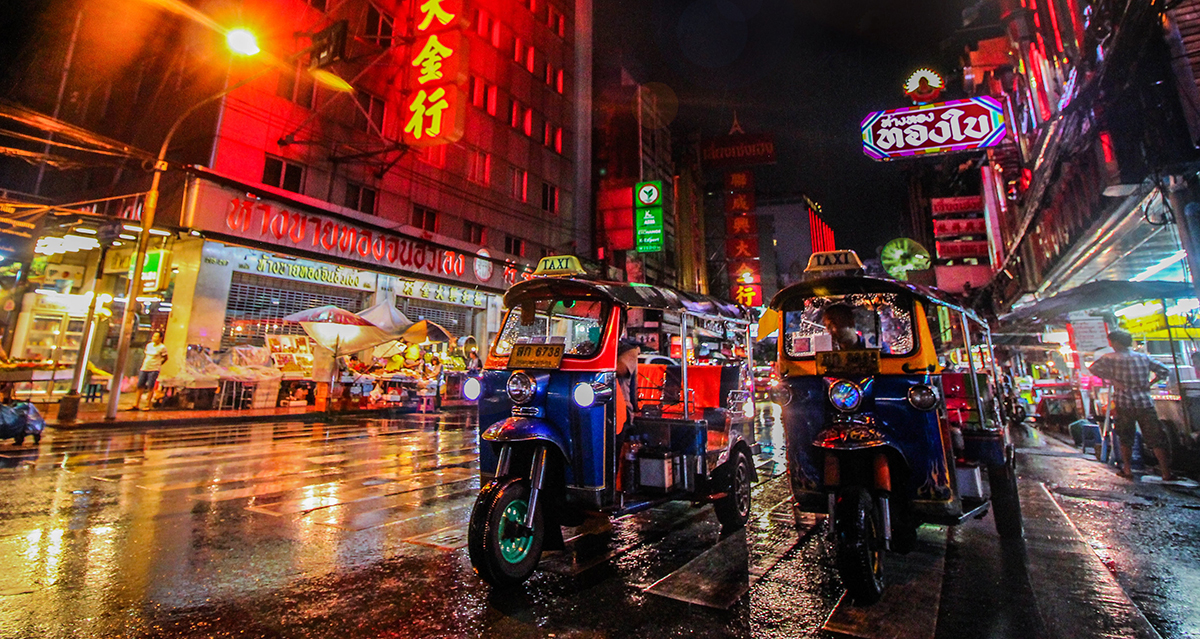
Makeshift Pandemic Policies for Makeshift Mobility
mars 16, 2020 — The Big Picture
As concerned governments around the world impose emergency measures to “flatten the curve” and slow down this pandemic, public transportation struggles with its central role of keeping cities connected while avoiding serving as a convenient vector for the virus.
To reduce contact, many transit agencies have suspended fares, changed boarding procedures, and mobilized their workforce to sanitize their fleets each night. They are doing this all while ridership collapses tanking their already meager revenues from the farebox. US transit agencies are petitioning the federal government for billions of dollars to keep the trains and buses running.
For cities dependent on informal transportation – on tuktuks, cycle and auto rickshaws, motorcycle taxis, minibuses, jeepneys, collectivos, and matatus— no such options are available. And, while most public transport services in the US carry a smaller share of commuters, most informal transit services serve as much as 80% of their urban populations. They are critical to the economy and mobility of their cities.
City and national governments struggle to impose any meaningful control to effect social distancing and protect the passengers and drivers of informal transportation.
The measures feel as makeshift as the mobility itself:
City officials in Delhi started sanitising auto rickshaws and taxis, a mammoth undertaking to cover the nearly 100,000 auto rickshaws that serve the India capital.
Lagos required all danfo drivers to wear gloves and masks as did El Salvador for collectivos. In both cities, compliance was less than spotty. It was not even clear how compliance would be imposed except through checkpoints. Checkpoints, which of course, risked new nodes and connection points for the virus. Requiring gloves and masks also makes no sense as they draw supplies away from health services. Fares are also always paid in cash which provides another vector for the virus.
Kenya prescribed arbitrary reductions in passenger loads for matatus, ordering “14-seater matatus to carry a maximum of eight passengers…Twenty-five seater buses will carry 15 …Vehicles that carry more than 30 should carry 60 per cent less.”
The order was largely ignored even as matatu associations threatened to raise fares to make up lost income from the prescribed shortfalls.
Operators of makeshift mobility have every incentive to continue running their services. Drivers and conductors (and vehicle owners) depend on fares for their daily income. And, as said earlier, all these services run on solely on cash transactions. Kenya at least has M-pesa and can quickly shift to contactless payment.
For many cities, it is easier to issue a blanket ban as part of a lockdown.
The Philippines issued a lockdown on the main island of Luzon and banned all public transportation while still allowing private vehicle use in the megacity of Metro Manila. But leaders failed to provide public alternatives and, unsurprisingly, this led to chaos on the streets. (Strongman Duterte even had a public spat with a popular young mayor who dared to use tricycles to ferry the sick and frontline health and government response workers.)
At least 75 cities in India are also moving to lockdown – and banning cabs, taxis and auto rickshaws. Unlike Metro Manila, at least the Indian cities are also banning private vehicles spreading the pain of immobility to the upper middle class and the elite.
The problem, of course, is that cities already struggle to regulate informal transportation. While these privately provided public mobility allowed governments to postpone real investments in transit, they also forwent any substantial control on the quality and control of the services.
The only regulatory levers cities deployed were prescribed routes, fare caps, traffic rules, and, for some cities, vehicle colors. The rest of the dynamics of the service were given over to hyper competition. Commuters had and have very few protections.
This laissez-faire approach that served cities in global south well in-terms of not having to make substantial infrastructure investments has also excused them from providing (or indeed having the institutional setups to provide) economic safety nets for makeshift mobility. While commuters will feel the pain of a collapsed urban mobility system, governments can continue their disinterest and disinvestment.
Uttar-Pradesh, a state in India run by avowed socialists, has at least promised to compensate informal workers, including cycle and auto rickshaw drivers. It is not clear if any other city or state will follow suit.
And while the government owned transit agencies in the global north will need cash infusions to rebuild their services after the world recovers from the pandemic, cities in the global south that are dependent on informal transportation will find it terribly easy to regrow the same hypercompetitive makeshift mobility systems that they have now.
The virus is revealing how incompetent regimes and state disinvestment fail in the face of pandemics. Sadly, this marries well with the mobility that grew out of government neglect of urban transportation. There has to be a better way.
Benjamin de la Peña writes and curates makeshiftmobility.substack.com, a fortnightly newsletter focused on informal transportation.